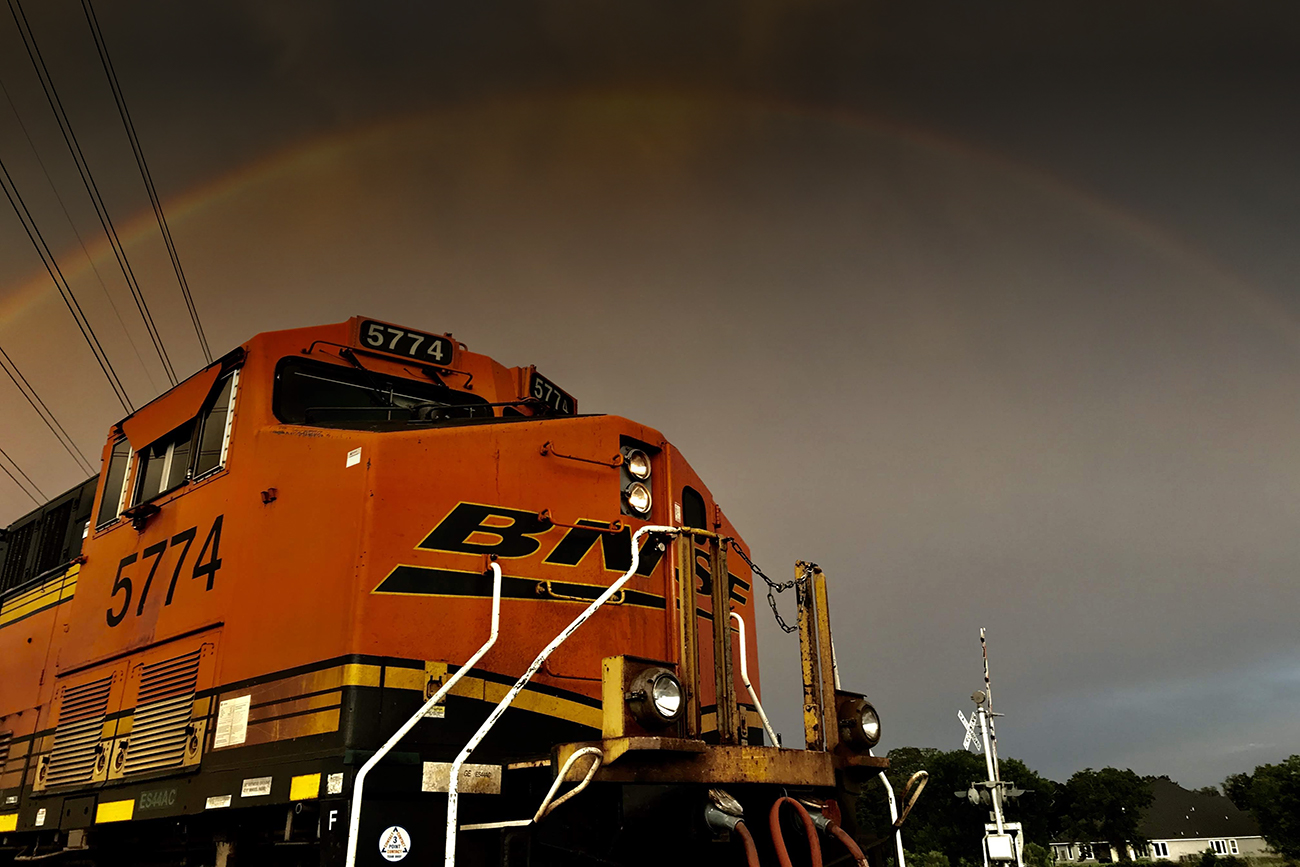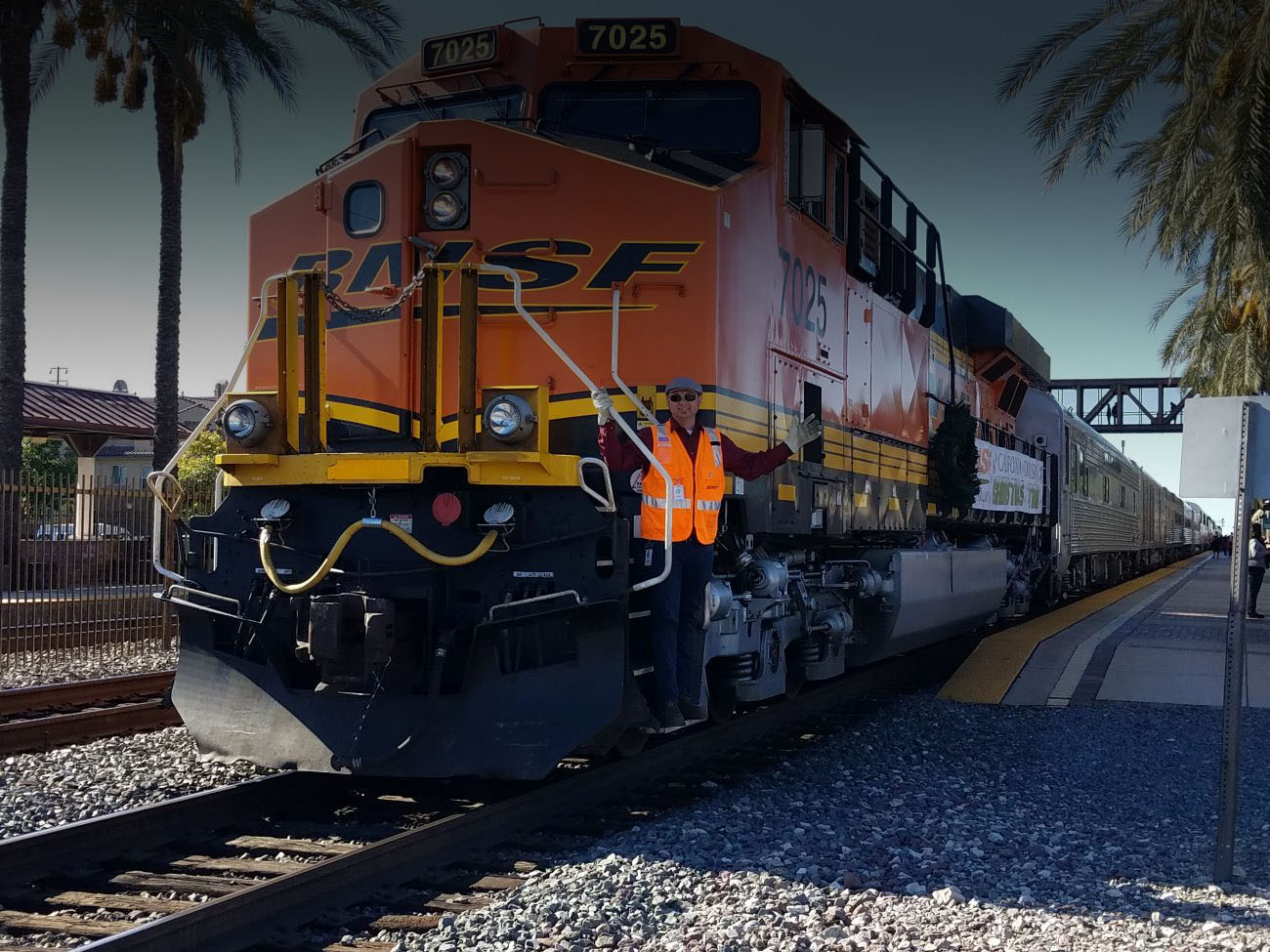Higher calling: Train crews have big rewards, tough sacrifices

Being a locomotive engineer or a conductor is something of a calling, according to those who do this important job. We couldn’t operate our 32,500-mile rail network without our employees, and they truly are what differentiates us as a company.
“I always wanted to be an engineer,” Michael Bahr, BNSF locomotive engineer located in Vancouver, Washington, said. “It’s a satisfying job and I feel accomplished when I’m doing it.”
Locomotive engineers operate the trains that haul freight across our network. They play a significant role in how our trains safely and efficiently move, having to exercise judgment and plan ahead. The engineer is also responsible for controlling slack in the train by employing proper train-handling techniques to ensure that there’s no damage to the freight cars and the goods and materials they hold.
The conductor’s job includes everything from inspecting equipment on freight cars before departure and maintaining compliance with all train orders, signals, and rules and regulations to working with customers on proper placement of freight cars.
Because of the work they do, locomotive engineers and conductors are a crucial component of the value our network brings to our customers. We rely heavily on them to get our freight where it needs to be, and they do a great job.
BNSF’s locomotive engineers start out as conductors, who are hired by the company as conductor trainees. To become a locomotive engineer, conductors must complete training and pass an exam.
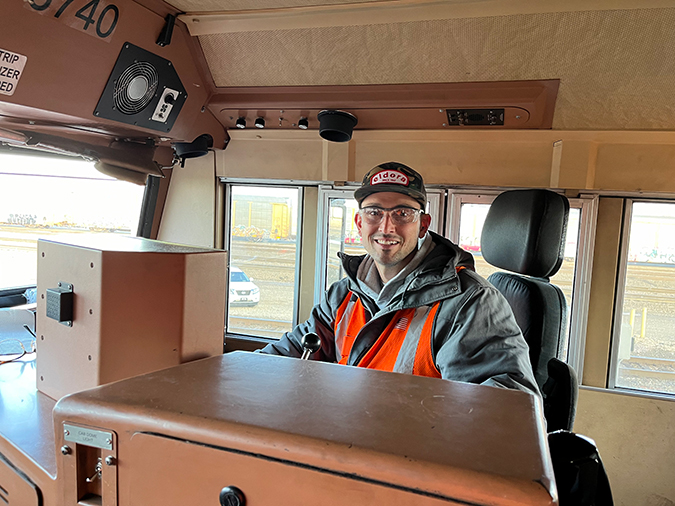
Locomotive Engineer Ben Hornbeck has been on the job for nearly 12 years. Like all positions, his comes with its challenges, but Hornbeck is honored to follow his family’s heritage as a railroader. While it’s a lot of responsibility, he finds that the benefits outweigh the challenges.
“The job never gets boring or old,” he said. “I have the unique opportunity to work with different people every day for several months at a time before they rotate back around.”
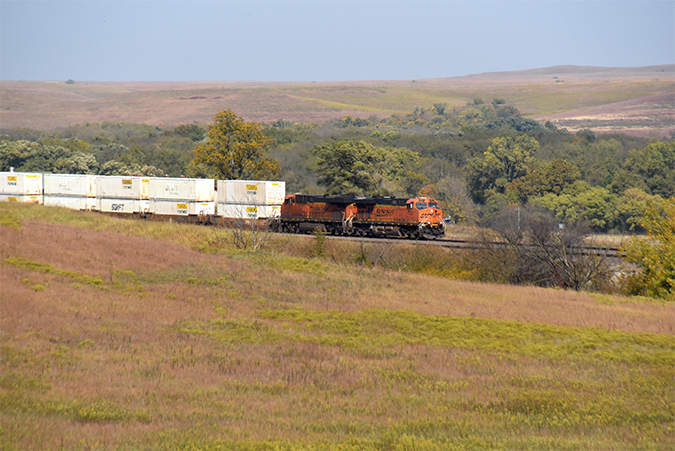
Hornbeck also enjoys the scenery that can be viewed from the cab. He works near Kansas City, Missouri, and the landscape is always changing due to the vast area he covers. His route takes him through old railroad towns, grasslands and the Flint Hills of Kansas.
“We see a lot of scenery that most people don’t get to see on a daily basis,” he said. “I enjoy the wildlife coming and going throughout the seasons and the birds migrating as well.”
Oliver Turner, located in Galesburg, Illinois, has been with the company for 25 years. While he and Hornbeck share the same title, Turner’s job is a little different. Turner travels to relieve “over-the-road” train crews whose federally regulated hours of service have expired but they haven’t made it to their final terminal yet. This role is an integral part of keeping our trains moving forward and our network operating efficiently.
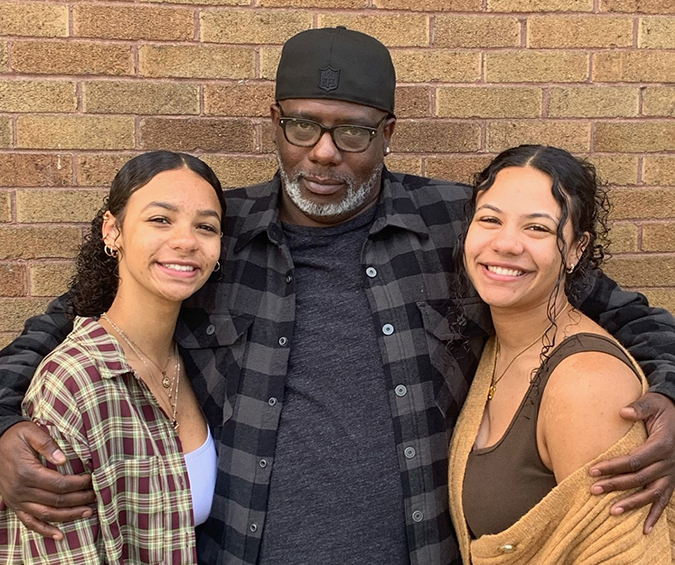
Turner’s favorite part of the job is the people he works with and their different personalities. He’s worked with a lot of the same people on multiple occasions and over time has become deeply familiar with the way they work, which builds strong relationships.
“I have made many lifelong friends at BNSF,” he said.
Bahr has been with BNSF for 28 years. He was offered the job through a veterans’ representative at the state employment agency and credits the position for changing his life.
“Being an engineer was a dream job from a young age,” Bahr said. “My earliest memories of wanting to do something for the railroad are from my dad, who was a railway post office clerk.”
Bahr said one of the benefits of working for BNSF is a steady schedule. Now that he’s worked for the company long enough to develop seniority, he can rely on his hours to stay the same, an advantage that junior railroaders earn over time.
Bahr’s favorite part of the job is waving to railfans. Many are excited to see him and hear him blow the train whistle. “They always bring a smile to my face and make the job feel worth it,” he said.
While being a locomotive engineer is rewarding, it comes with challenges because trains operate 24/7. In the early stages of the career, work schedules can be unpredictable. Certain jobs can take time away from family, so engineers and conductors may miss holidays and important events.
While challenges remain, progress was made within the past year on the ongoing effort to bring more schedule predictability. Through recently ratified collective bargaining agreements, all union employees at BNSF will soon have access to work/rest agreements.
“I make sure I’m available to my family and that I’m present when I’m with them,” Hornbeck said. “It’s a sacrifice for sure. The truth is I miss some things that they would like me to be a part of, like church or Boy Scouts, but I also show up for things that other dads aren’t able to show up for. It’s all about balance.”
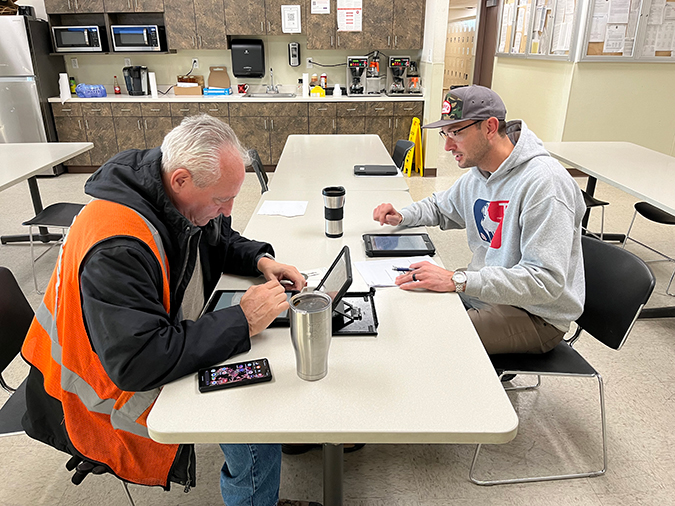
Many train crews are on call, which can be challenging. Once their 10 hours of legally required undisturbed rest time is up, they can be called to work. However, employees can also have as much as 48 hours off between trips. They have an app they can monitor to see where they are in line to work. Those just off their rest time start at the bottom of the “board” and move up until they get called in to work.
“When I receive my two-hour call, I finish up any loose ends around the house, pack my lunch and head in,” Turner said. “I’m able to watch the board and predict when I’ll be heading in so it’s not a surprise. Being on call has taken me away from many holidays and family events, but the financial stability the job offers made it worth it.”
This work that so many people are depending on our employees to do is challenging, but it does have its rewards. Train crew and their families are offered great benefits. For instance, engineers and conductors are offered platinum level, high-quality health insurance, enhanced Social Security retirement benefits, a substantial number of paid and unpaid days off and other valuable benefits.
“The health insurance benefits may be some of the top benefits in the nation,” Turner said. “Having access to medical, dental vision and mental health services for myself and my family is vital.”
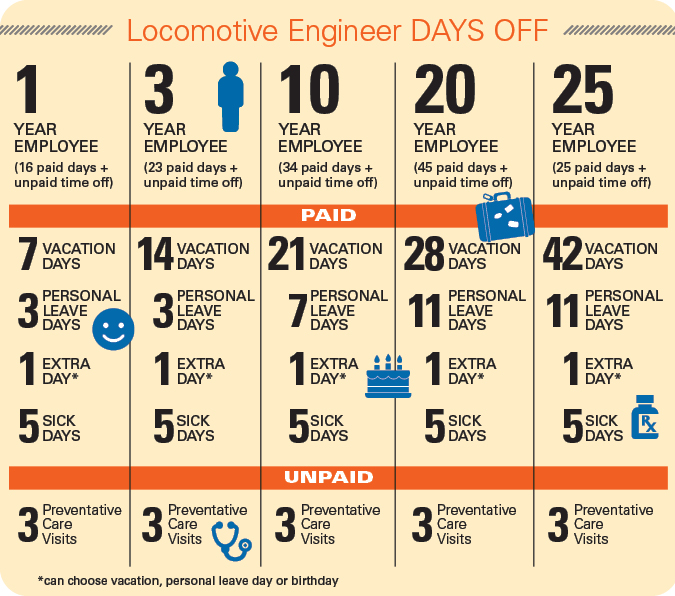
As the graphic above shows, junior engineers get at least 16 paid days off a year. That increases over time and a third-year employee will have 23 paid days off while a 10-year employee will have 34 paid days off. Engineers make a lot of sacrifices, but many find the job gives them a life they may not have had otherwise.
“Despite the time demands of the job, it’s the highest-paying job in this area that doesn’t require a college degree,” Turner said. “The financial security allows me to provide for my family, my kids to go to college and to go on vacations. Not everyone has this luxury. BNSF is more than a job. It’s a career that offers a great amount of upward mobility to every employee. It can challenge you to be the best that you can be.”
On average, employees starting out as a new hire conductor earn approximately $75,000 per year following training. But the earning potential for experienced conductors could grow to more than $94,000 depending on seniority, job selection, hours worked and other factors. Employees who complete required training and become a locomotive engineer often earn $135,000 or more; again, this is an average based on seniority, hours worked, pay rates, and other factors.
The railroaders interviewed for this story said they would choose the job again if they had a chance to go back in time and pick a different life.
“When people ask me if I’d do it again, I say I’d do it again in a heartbeat,” Bahr said.
Thank you to our locomotive engineers, conductors and all employees for the important work you do to move the freight Americans and the world needs.
To learn more about how to join our railroad, visit our careers website.
